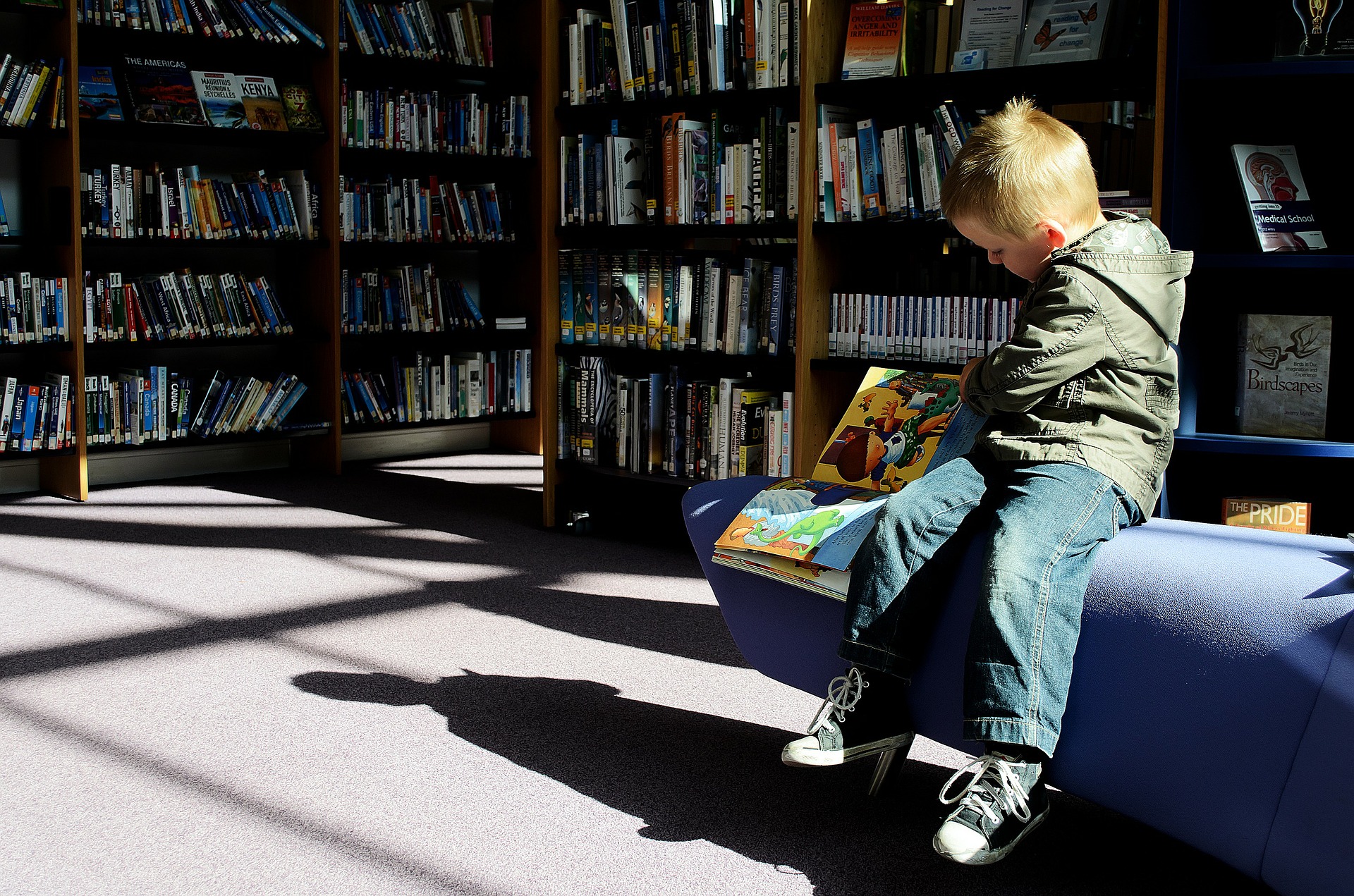Number of Books and Education

Is the lack of physical books problematic for children’s education?
So, I read this op-ed in the New-York Times last week (how very scholarly of me…). Teddy Wayne argues that having more digital and less physical books may detract from children’s ability to pick up their parents’ books and be affected by them (for the better, I assume). He’s basing this argument both on his experience with his parents’ vinyl records collections, and a study that was done recently supporting the idea that the number of books in the home has large effects on children’s academic achievements. He argues that “Owning books in the home is one of the best things you can do for your children academically.” And he suggests that digital books may not have the same effects.
I want to talk a bit about this idea that the number of books in the home (the size of the home library) affects children’s academic achievements. The study found that the more books are in the home, the better children’s academic achievements are. Moreover, there is a much bigger effect for the first 100 books than the next 100 books, and these effects are similar across a wide array of developed and developing countries. These last two findings indicate that having more books at home (up to a certain level: there’s not much of a difference between 500 and 600 books) gives children tools to do better at school, rather than signal to the elite gatekeepers that you come from an ‘elite’ household.
How does having more books help children do better at school? Presumably, the more books are in the home, the more often parents and children share a book, and this shared reading is what helps children do better. We know that shared reading at home does help children read better, but if you look closely at the linked study, you’ll see that actually the number of books in the home was completely unrelated to the number of times per week parents reported to share a book with their child. What’s more, a survey done a couple of years ago in the UK showed that the number of children books in the home was related to the child’s reading skills (as reported by the parents)–but so was the number of non-children books.
This mean that the link may be not so much about how many books are there in the home or about how many times the children read books, but about how much the parent(s) enjoy reading, care about and value books and reading. If that’s the case, it shouldn’t matter whether the books are physical or digital, assuming that the parents’ reading habits are similar regardless of the form of the book. I, for one, find that I read much more since I’ve acquired my Kindle–access to new books is much easier when you don’t have to physically drag yourself to the library or the bookstore whenever you finish your book. It looks like people are coming back to print books, but I couldn’t find a study about whether people prefer ebooks or print, and what makes them read more.
The truth is we don’t know how the transition to digital books is going to affect children’s educational attainment as a whole. We do know a little bit about the differences between the two forms of books for children. For example, I wrote a little while back about a study that compared how parents and children interacted when they were reading a physical book as compared with an e-book. There has been some more research on this since I wrote that blog post, but the main conclusion is still that e-books are different from print books.
I think it’s still too soon to tell whether this difference means that e-books are somehow less or worse than print books. E-books do provide “a multisensory reading experience that supports comprehension and critical reading”. That is, children interact with digital books in different, more complex ways than they do with print books, and that makes sense. Digital books offer a much richer stimuli array than print books: they often include games (especially if the e-book is on the iPad or other computers), they have the syllable-light-up effect, and so on. Children tend to be more engaged with the digital books, but there seems to be no difference in their story comprehension or in the effect of reading either kind of book on children’s reading skills.
So, should you buy more physical books? Only if you’re going to read (and enjoy) them. Should you read with your child? Absolutely. That is hands-down the most important thing to remember: when we read with our children, when we engage them in the book (ask questions such as: What do you think will happen next? Why do you think (s)he did that? How do you think (s)he feels now?) we teach them how to read and understand a story, but also how to enjoy reading a book. And if reading a book is the prize, we have already won.
